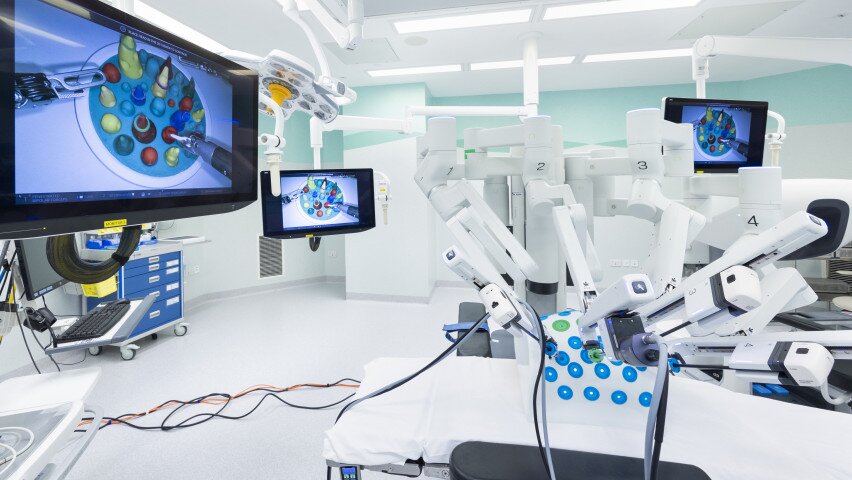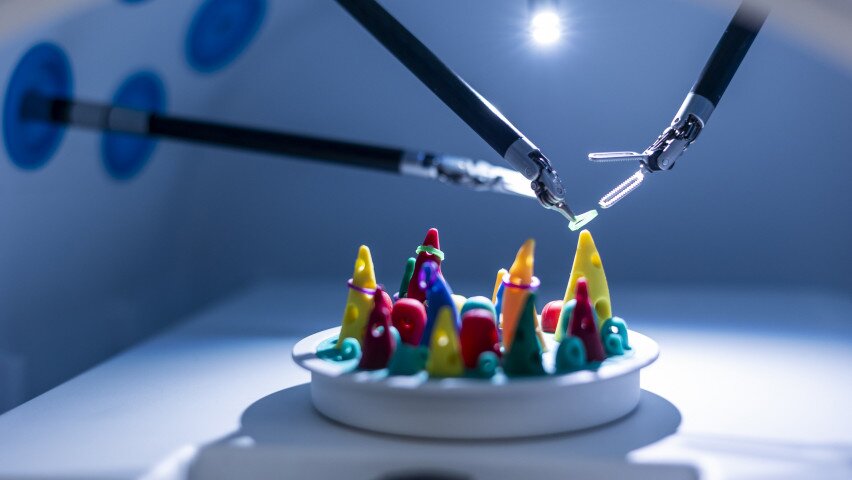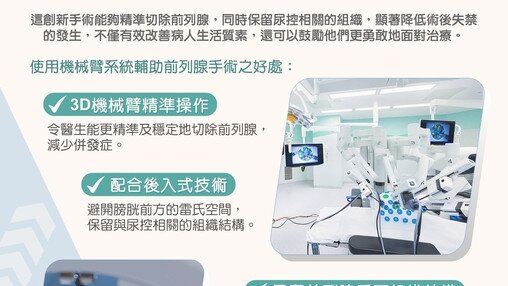Prostate Health Clinic
Service Hours
MON - FRI: 9:00AM - 5:00PM
SAT: 9:00AM - 1:00PM
SUN AND PUBLIC HOLIDAYS: CLOSED
Contact Us



Introduction
The CUHK Medical Centre Prostate Health Clinic provides assessment and personalised treatment for men with prostatic diseases. Our clinic aims to provide patients with high-quality service in benign prostate hyperplasia (BPH) and prostate cancer.
Our Services
- The CUHK Medical Centre Prostate Health Clinic provides assessment of prostate health for men aged 50 or above.
- For men with BPH, our clinic offers a wide range of treatment options, aiming to achieve good efficacy with minimal invasiveness.
- For men with suspected prostate cancer, further investigations such as imaging and prostate biopsy will be offered.
- For men with confirmed prostate cancer, our clinic offers different treatment options including robotic surgery, radiotherapy and focal therapy.
- A multi-disciplinary team of urologists, oncologists and radiologists will provide their expertise according to the patients’ needs and their urological conditions.
Prostate Health Programme
The Prostate Health Programme is tailor made for men aged 50 or above, who are suspected to have prostatic diseases. Common prostatic diseases include BPH, prostate cancer, etc.
Common presentation of prostatic diseases include
- Lower urinary tract symptoms
Slow stream, sensation of incomplete emptying, urinary frequency and nocturia. - Elevated Prostate-Specific Antigen (PSA)
A higher level of PSA indicates a higher risk of prostate cancer.
For patients who are joining the Prostate Health Programme, two medical consultations will be included.
- First consultation
- General health assessment
- History taking and physical examination
- Ultrasound prostate sizing
- Blood tests for renal function and PSA
- Urine multistix
- Uroflowmetry and post-void bladder scan - Second consultation
- The above investigation results will be explained
- Further management plan of the underlying condition will be discussed
Discounted Fee: HKD $3,200
(Original Fee: HKD $4,165)
Booking: 3946 6888
For more enquiries, please contact Prostate Health Clinic: 3946 6088
Please click here for more programme information.
Download
Health Knowledge
View AllMedical Team
View AllCUHK Professorial Team
Service Hours
MON - FRI: 9:00AM - 5:00PM
SAT: 9:00AM - 1:00PM
SUN AND PUBLIC HOLIDAYS: CLOSED
Contact Us


























